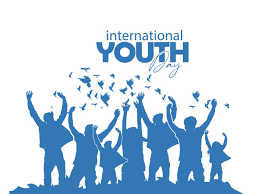By Alusine Fullah
“Strong and inclusive democracies need youth participation.Young people have a fundamental right to determine how power and resources are used in their societies. By not including them in decision -making processes, either in the public or private sector, countries loses a crucial resource base. Young people can contribute a great deal through their perspectives and experiences; no governance structure can be truly successful without them,” –United Nations Security Council.
Qualitatively, youth is defined as a phase when a person moves from a time of dependence (childhood) to independence (adulthood).There are approximately 1.7 million young people between 15 and 35 years of age in Sierra Leone: 34 percent of the estimated population. Furthermore, 42% of Sierra Leonean’s are under the age of 15, and therefore the youth population will continue to increase.
Globally, youth participation and representation in institutional political processes and policy-making is relatively low.  People under the age of 35 are rarely found in parliaments, public administration, and decision-making bodies such as committees on peace building and constitution building. In one-third of countries, eligibility for the national parliament starts at 25 years or higher (as high as 45 in some places). Even when the voting age is 18 years of age, eligibility to be a candidate is often higher. Strong and inclusive democracies need youth participation.
People under the age of 35 are rarely found in parliaments, public administration, and decision-making bodies such as committees on peace building and constitution building. In one-third of countries, eligibility for the national parliament starts at 25 years or higher (as high as 45 in some places). Even when the voting age is 18 years of age, eligibility to be a candidate is often higher. Strong and inclusive democracies need youth participation.
On the 9 December 2015, the United Nations Security Council adopted the resolution 2250 on youth, peace, and security (YPS), which acknowledged the positive role young women and young men play in the society as well as in sustaining peace and security. The resolution recognized young people as a positive force in preventing and resolving conflicts and building sustainable peace.
Many persons believe that youth are leaders of tomorrow, however, they are leaders of today, and its unique experiences and different origins that will help shape their political attitudes. Therefore, it is imperative they learn more about politics and get involved to channel their energies for positive change, thus, becoming vanguards for the promotion and protection of democracy.
According to United Nations (UN) youth, the youth folks are up to one-fifth of the population of our world. The facts show that a younger generation engagement is needful for greater democratic governance.
Sierra Leone does not have a tradition where youth participate in the national and district development-planning process. Even where the Government has established District Youth Councils (DYCs), Zonal Youth Councils (ZYCs) and Chiefdom Youth Councils (CYCs), the majority of youth are not aware of their roles within these mechanisms and the processes involved in participating and influencing their outcomes.
There is a strong belief among young people that their needs are not met by the national and local political structure. Although they are cognizant of the important role local council play in delivering services to the community, they feel that the enabling environment is not present for them to participate actively in the national or local decision making process. They are of the view that they are systemically ‘shut out’ of the decision making process and that the services delivered do not meet their expectations.
Youths are the main stay of present day Sierra Leone, and the movers of the country’s destiny. With youths as active, educated, productive and entrepreneurial citizens, this country shall sustain its achievements and transcend its limitations. In line with the foregoing assertion, the impact of young people in the modern age of democracy cannot be overemphasized.
Youth that are politically involved in their very own local community from the beginning are more probable to become committed voters and citizens truly. To have great and better youth citizenship, politics is indeed one of the greatest tools out there; they are more likely to serve their communities in many areas.
In Sierra Leone, the issue of youth participation in governance has a powerful resonance because of its devastating association with the civil war of 1991-2002. In recognition that, on the one hand, youth political disenfranchisement had catalysed and exacerbated the conflict and, on the other hand, that the conflict had created a generation of excluded and disadvantaged young people, the post war years saw several important developments aimed at addressing the specific needs of young Sierra Leoneans. The Ministry of Education, Youth and Sports was established in 2003. This was later separated in to a dedicated Ministry of Youth, Employment and Sports and in 2013 further rationalized in to a Ministry of Youth Affairs. Two youth-specific legal instruments were also created: The National Youth Policy of 2003 gives policy backing for the first time to the concept of youth as a national development priority. The policy outlines the roles and responsibilities of the youth themselves, the state and other actors and creates specific instruments for supporting and promoting youth issues at the district level through the creation of District Youth Councils (DYCs).
As more resources are channelled both towards tackling youth exclusion and disadvantage as well as towards harnessing young people’s potential as partners in growth, the role of young people in deciding and managing the allocation of resources has been brought in to sharp relief. In Sierra Leone, for the past decades there is increasing recognition that young people not only have a right to determine how resources are used, but that they bring unique and valuable experiences and viewpoints to the political ecosystem.
To make a difference in the longer term, it is essential that young people are engaged in formal political processes and have a say in formulating today’s and tomorrow’s politics. Inclusive political participation is not only a fundamental political and democratic right but also is crucial to building stable and peaceful societies and developing policies that respond to the specific needs of younger generations. For young people to be adequately represented in political institutions, processes, and decision-making, and in particular in elections, they must know their rights and be given the necessary knowledge and capacity to participate in a meaningful way at all levels.
When there are obstacles to participating in formal, institutionalized political processes, young people can rapidly feel disempowered. Many tend to believe that their voices are not going to be heard or that they will not be taken seriously even if they are heard.  The problem becomes circular as politicians may lose interest in responding to the aspirations of young people if they cannot win their votes. This in turn leads to young people being increasingly excluded from taking part in decision-making, or in debates about key socio-economic and political issues, despite their sensitivity to the demands for social equity and justice, environmental protection and cultural diversity.
The problem becomes circular as politicians may lose interest in responding to the aspirations of young people if they cannot win their votes. This in turn leads to young people being increasingly excluded from taking part in decision-making, or in debates about key socio-economic and political issues, despite their sensitivity to the demands for social equity and justice, environmental protection and cultural diversity.
There are many ways to bring young people closer to the democratic discuss. By participating in advisory boards or local youth councils, young people can meet with local politicians, ambassadors and possibly attend city council meetings. Therefore by witnessing and being a part of these events, young people will gain first hand governance & international relations. The youth then gets a first glimpse of how decisions are made in local government, which is useful to them, as they can see how those decisions have a direct impact on their lives. More so, it gives them a platform to continue lobbying for youth advocacy and championing for the inclusion of youths in all levels of the professional and social spheres.
Indeed, young people have a key role to play in the present and future of democracy in Sierra Leone. Engaging young people in democratic processes and allowing them to participate safely and constructively, in politics are core aspects of any effort to sustain democracy. Investing in the capacity, agency and leadership of young political leaders will strengthen their ability to collectively lead peace efforts and use their skills to tackle other concerns that affect their lives, particularly in these challenging national and international issues.









